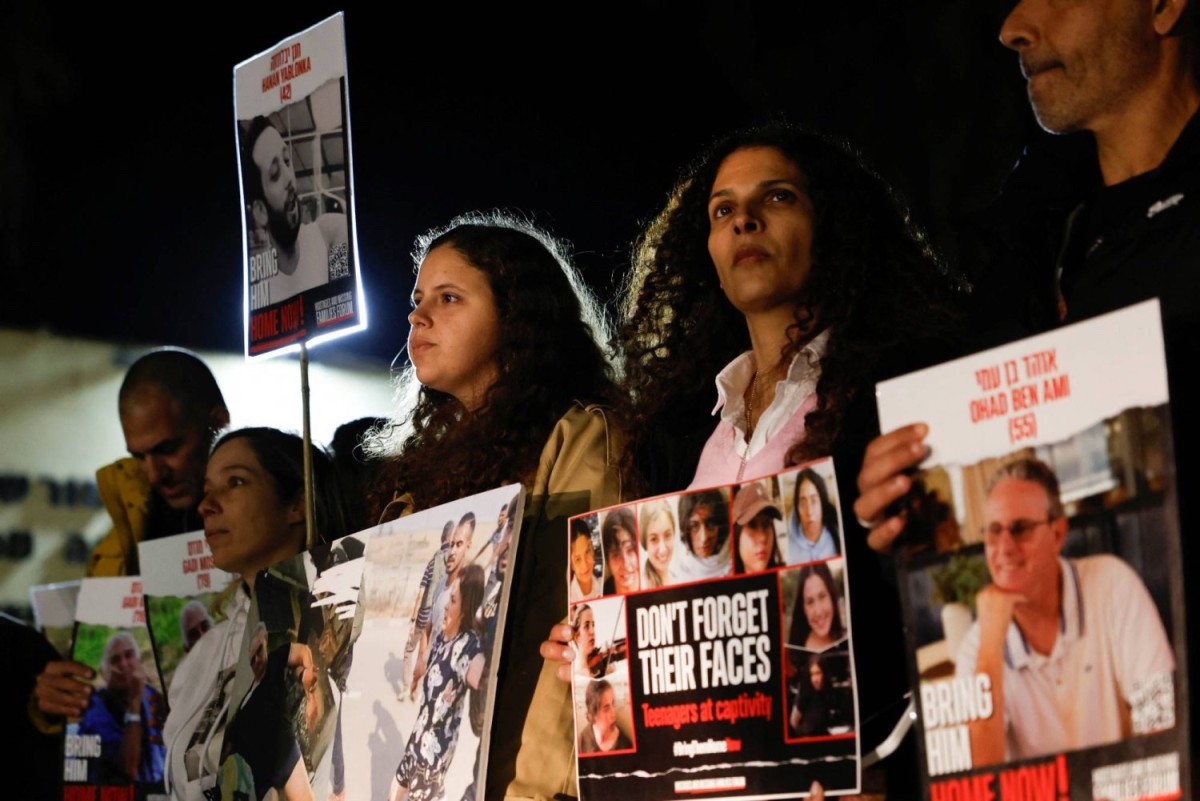The families of the prisoners accuse Netanyahu of waging a second war against them


The families of Israeli prisoners held by Hamas expressed deep concern over the actions of Israeli Prime Minister Benjamin Netanyahu. They accused him of neglecting them, putting them at the bottom of the scale of attention, and sacrificing them on the “altar of his personal battle.” They saw the policy he was pursuing with them as “a war aimed at disintegrating their ranks and silencing them.” He forced them into a corner from which they watched the prisoners die in secret, helpless.”
This came after Netanyahu’s decision not to send an Israeli representative to Cairo to continue the talks, contrary to the request of Mossad chief David Barnea and Shin Bet head Ronen Bar, and his office said that “as long as there is no answer, Hamas will abandon its demands.” Delirious, you must wait.”
The families of the prisoners considered the lack of Israeli participation and talk of waiting “irresponsible behavior based on arrogance and arrogance” and did not show a minimum of sympathy for their tragedy and the suffering of them and their captive children. They said that they felt intense anger, frustration, and despair at the state and its leaders, and they decided to escalate their struggle against this policy. They decided to participate in the protest demonstrations launched by the leaders of the popular protest in front of the homes of ministers and representatives.
Absence from negotiations
It is noteworthy that, unlike the previous kidnapped deal, Netanyahu almost alone leads the steps regarding the deal and does not include his companions in the War Command Council, Benny Gantz and Gadi Eisenkot. An official in Netanyahu's office tried to mitigate the impact of his decision to be absent from the negotiations, and said that discussions in Cairo on a possible agreement to liberate the kidnapped persons will continue in the next two days, with Israel being informed of its developments. He stressed that the political and security cabinet in the government will receive a review of the status of indirect talks with Hamas on the deal to liberate the kidnapped persons.
According to a request submitted by many ministers from the Likud Party, the decisive discussion about the deal will be in the “expanded cabinet” and not in the “narrow cabinet,” unlike the previous deal in which the decision was made in the narrow cabinet. Many ministers had criticized in a previous session the framework proposal for the deal, as decided in the previous stages. They expressed their opposition to dividing the deal into stages that do not include all the kidnapped persons.
The Israeli sources rejected talk of optimistic progress as suggested by the mediators, and said that “the talks held in Cairo witnessed (slight progress),” “after (Hamas) backed down from the demand that Israel stop the war completely as a condition for liberating the kidnapped.” However, there are still huge gaps between Israel and Hamas on the central issues related to the number of Palestinian prisoners who will be released from Israeli prisons.